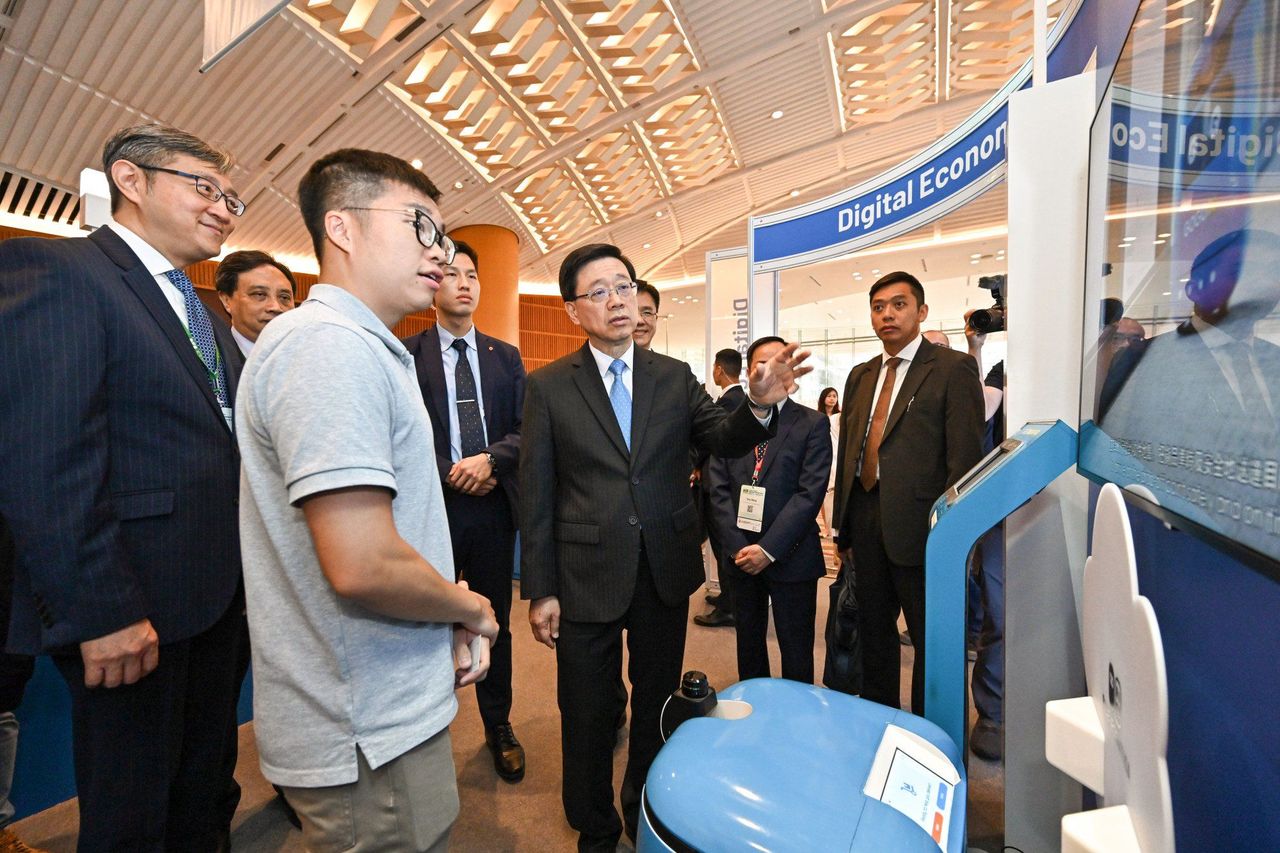Hong Kong News

Next phase in developing Hong Kong’s digital economy begins now: John Lee
Hong Kong is poised to enter the next phase of developing its digital economy, the city’s leader has said, pledging to prioritise business and investment opportunities as part of efforts to pursue high-quality growth.
Appearing at the Digital Economy Summit on Thursday, Chief Executive John Lee Ka-chiu said the two-day conference marked the first in-person mega event organised by authorities for the innovation and technology (I&T) sector since the Covid-19 pandemic began in early 2020.
The digital economy had transformed the world in unprecedented ways, creating opportunities for people to ride out the pandemic by reforming traditional business models and creating new industries, he added.
“From e-commerce and online education, to remote work and smart city innovations, the adoption of digital technologies is now part of the new normal today around the world everywhere,” he said.
“The digital economy offers a way forward for businesses and individuals alike, providing opportunities for growth and resilience in the face of uncertainties.”
Lee said Hong Kong had embarked on a new chapter of digitalised development, citing the city’s role as an international I&T centre as outlined in the country’s 14th five-year plan.
 Chief Executive Lee (third left) tours an exhibition at the Digital Economy Summit.
Chief Executive Lee (third left) tours an exhibition at the Digital Economy Summit.
During the first session of the 14th National People’s Congress held in Beijing last month, Chinese President Xi Jinping pledged to fully implement an innovation-driven development strategy and constantly increase the country’s scientific and technological capabilities.
“We are now poised to start a new chapter of digital economy development through our persistent pursuit of I&T advancement,” Lee said.
“The Hong Kong government is committed to promoting I&T development in order to foster a more vibrant and diversified economy.”
The city leader also cited various measures rolled out by the government to develop the digital economy, including a commitment of HK$700 million (US$89.1 million) and a proposal to set aside HK$9 billion for various I&T initiatives, HK$3 billion of which would go to exploring fields such as artificial intelligence (AI) and quantum technology.
“It is our top priority to ensure that business and investment prospects in Hong Kong will continue to flourish in the years to come,” Lee said. “The Hong Kong government will continue to proactively steer our future high-quality economic development in the era of the digital economy.”
Secretary for Innovation, Technology and Industry Sun Dong said authorities considered growing the I&T sector to be a high priority and vowed to roll out more initiatives spearheading the development of a digital economy and smart city.
“The wider adoption of I&T could revitalise traditional industries, spawn new businesses, foster a diversified economy and create quality employment opportunities in Hong Kong,” he said.
The minister hailed the signing of an agreement with the country’s Ministry of Science and Technology last month, which focused on developing Hong Kong into a global I&T centre, as an important milestone.
“I am confident that this will further inject new impetus into our development as an international I&T centre,” he added.
Other proposals to expand the I&T sector that featured in this year’s budget included the formation of a HK$30 billion Co-Investment Fund for attracting enterprises, as well as the launch of a HK$10 billion “Research, Academic and Industry Sectors One-plus Scheme” to commercialise research and development (R&D) outcomes.
Last December, the city government ambitiously vowed to grow the I&T sector by doubling the number of talent, start-ups and unicorn enterprises in the city over the next decade.
But the policy blueprint released by the government that month did not include a detailed road map on how the Innovation, Technology and Industry Bureau would achieve its targets.











